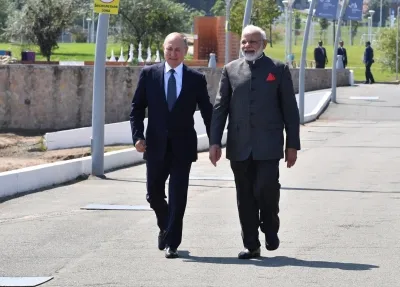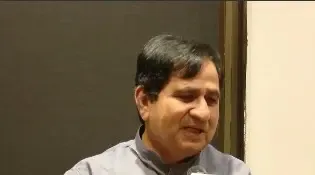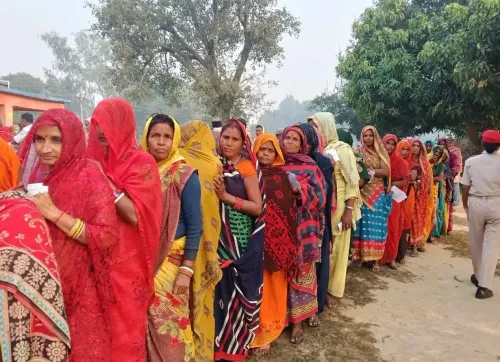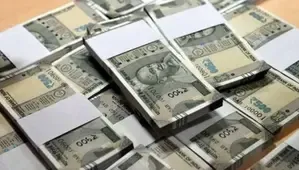What Are the Emerging Dynamics of the India-Russia Relationship?

Synopsis
Key Takeaways
- Enduring Trust: The core of India-Russia relations remains a strong foundation of trust.
- Economic Cooperation: The shift towards economic and technological collaboration marks a new chapter in their partnership.
- Global Perspective: Both nations are navigating a complex geopolitical landscape, emphasizing the importance of multilateral organizations.
- Expert Insights: Contributions from leading scholars provide a nuanced understanding of the evolving relationship.
- Future Prospects: The potential for enhanced cooperation in various sectors offers promising opportunities for both countries.
New Delhi, July 27 (NationPress) The partnership between India and Russia stands as a remarkable narrative in the realm of diplomacy, having evolved through pivotal historical phases including the Cold War, the dissolution of communism, the rise of economic liberalism, and the fluctuating tides of globalism and unipolarity. As we navigate the 21st century, this bilateral relationship not only addresses contemporary challenges but also uncovers new opportunities. Despite these transformations, the enduring trust between India and Russia remains a significant constant.
As we delve into the challenges of the third decade of the new century—marked by tumultuous global political changes, rising conflicts, terrorism, climate change, and economic protectionism—it's crucial to observe how these factors will shape the future of India-Russia ties. This evolution occurs against a backdrop of skepticism surrounding global institutions and the emergence of new regional and multilateral organizations.
This intricate landscape is explored in the insightful book titled “INDIA and Russia - Enduring Trust in a Transformational Era” (Har-Anand Publications Ltd., pp. 175), authored by a collective of scholars from both nations.
Editor Dr. Lydia Kulik highlights that while transformations abound, the fundamental trust remains unscathed. As the Head of India Studies at the Moscow School of Management, Skolkovo, and a Senior Research Fellow at the Russian Academy of Sciences' Institute of Oriental Studies, she emphasizes that 2024 is set to be a pivotal year for these bilateral relations.
The groundwork for this was laid during External Affairs Minister S. Jaishankar's significant visit to St. Petersburg in December 2023. Subsequently, Prime Minister Narendra Modi made two notable trips, the first following his third Lok Sabha election victory, where he was warmly received by President Vladimir Putin at his dacha, and the second for the BRICS Summit in Kazan.
Beyond these diplomatic engagements, numerous business initiatives unfolded in both countries, signaling a paradigm shift from the Soviet-era focus on military and diplomatic ties to a more expansive relationship encompassing economic, logistical, and technological collaborations.
Half of the book's ten essays, penned by esteemed experts from both nations, delve into these evolving dimensions, such as a piece by Dr. Anna Kireeva from MGIMO University, addressing Russia's strategy towards ASEAN and the collaborative framework with this crucial Southeast Asian bloc.
Former Indian Ambassador to Russia, Pankaj Saran, initiates the discourse with an eloquent overview of India-Russia ties, followed by insights from Dr. Tatyana Shaumyan on the nations' roles in multilateral organizations like the SCO and BRICS, advocating for the revival of the RIC format—a sentiment echoed by Russian Foreign Minister Sergei Lavrov.
Leyla Turayanova offers a nuanced view of PM Modi's July visit to Moscow, extending her analysis to his subsequent trip to Ukraine in August.
Key areas of economic and logistical collaboration are examined by Sergey Komyshan and Dr. Sergey Storchak, who discuss trade, investment, and financial cooperation as essential components of this relationship.
Dr. Julia Melnikova provides a keen perspective on connectivity initiatives, while Dr. Olga Ustyuzhantseva and Dr. Ivan Danilin address the challenges and advancements in science and technology.
Additionally, Dr. Aleksei Zakharov sheds light on Russia's renewed interest in South Asia, while Aryaman Nijhawan presents a critical analysis of the Russian-Ukrainian conflict's implications for bilateral relations.
Though concise, these studies offer profound insights into a vital relationship that impacts not only the two countries but also the broader Eurasian landscape and the global arena. Scholars and general readers alike will find this work both accessible and enriching.
(For further inquiries, reach out to Vikas Datta at vikas.d@ians.in)








